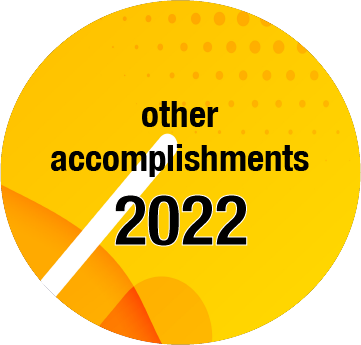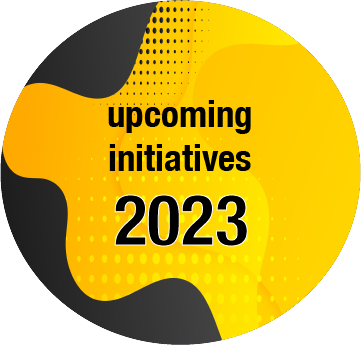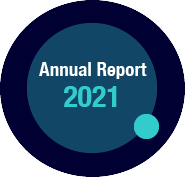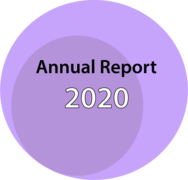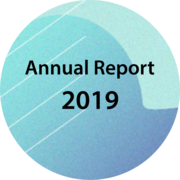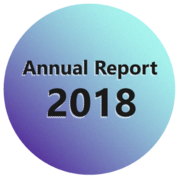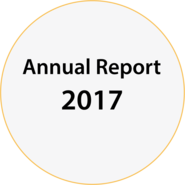IT highlights from the past year
I’m pleased to share Information Systems & Technology's (IST) 2022 Annual Report. This report highlights a number of achievements from the past year and their impact on various areas of campus. The stories we’ve chosen show ‘IT’ is not just about technology and systems but supporting and engaging our community in their work and study. I hope you find the report both informative and fun to read. Thank you for your partnership, and for helping us deliver state of the art, people-centric IT services and solutions in support of the University mission.

Bruce Campbell
Chief Information Officer
Campus Check-In

Keeping the Campus Community safe
What was Campus Check-In?
Campus Check-In was a suite of tools that enabled the University’s COVID-19 response over the past two years. The tools included important digitization and automation that allowed the University to efficiently and effectively gather records and data to meet the University’s obligations and keep our community safe.
Specifically, the ability to upload vaccination records, and have them automatically validated against the provincial database, as well as tracking of COVID tests, accommodation and exceptions, and both specific and aggregate reporting for the University senior administration, the Region of Waterloo, and the provincial government, were all included in this important suite of tools that were custom built and administered by Information Systems (IS) staff.
The technologies behind Campus Check-In
Campus Check-in was built by IS staff using the Microsoft .NET framework on the Azure platform. Analytical data was analyzed using the Microsoft PowerBI Platform and this data empowered the University to meet its COVID-19 compliance obligations.
These modern platforms allowed rapid development, delivery, and changes of the software to meet the evolving needs of the University as COVID response requirements changed regularly.
As is our standard practice, both technologies and data analytics were subject to an Information Risk Assessment review by the University.
Data centre firewall upgrade

Data centre firewall upgrade
In collaboration with IST's Information Security Services (ISS) team, the Technology Integrated Services (TIS) group upgraded the firewalls protecting University of Waterloo's central data centres. The previous Juniper firewalls were at the end of their life and were no longer supportable. They were replaced with newer, next generation Cisco firewalls. In addition to a performance increase, the new firewalls are application aware and can provide advanced analytics and protection. The original data centre network was deployed in 2011/2012. This recent upgrade provided an opportunity for a redesign that simplified the management and increased the flexibility of server installations.
Although this migration was a high-risk change with a high level of impact, through careful planning and testing by Networks and ISS, the migration occurred on December 4, 2022 with little disruption to campus services. The collaboration between IST groups enabled a successful migration without any major issues. The upgraded firewalls, along with the updated design, have improved the security posture of the University of Waterloo's central data centres and enabled better collaboration and integration with cloud vendors.
Atlassian Cloud initiatives

Between June and November 2022, IST completed the migration of Confluence and Jira Software from on-premises to the cloud environment, creating 40 additional projects this year. Standardizing the use of Atlassian Cloud products has helped to reduce on-premises costs and enhance integration with other Atlassian products already in use, including Jira Service Management (JSM). It will also allow for the expanded use of new Atlassian tools, such as Assets. Over this past year, Client Services has focused on:
Licensing
The development of a licensing model for Atlassian Cloud product, which will help define the usage parameters and ensure accurate management of the licenses.
Integrations
The integration and pilot (within IST) of the asset management tool, Assets, which provides the ability to store, analyze, and communicate various IT asset information in a consistent and standardized format.
User experience
Redesigning the JSM customer request portal to better align with customer needs. This second iteration is scheduled to be released in 2023.
IST will continue to meet with campus groups to discuss how Atlassian products align with their ticketing, project management, documentation, and asset tracking needs. Please feel free to submit any questions about these products via the IST Help Portal.
Cyber Awareness training

Cyber Awareness training
Cyber attacks are on the rise and dominating the headlines. Academic institutions are prime targets for such attacks due to the rich information environment; this is evident in the 30% increase in ransomware attacks affecting education (Verizon, 2022). The human factor is a key driver of 82% of data breaches, according to the Verizon Data Breach Incident Report 2022, which emphasizes the importance of having a strong security awareness program.
With the rise of cyber-enabled espionage, sabotage, and foreign influence, the Government of Canada has introduced the National Security Guidelines for Research Partnerships to provide a framework for researchers, research institutions, and Canada’s granting agencies to identify and mitigate potential national security risks linked to research partnerships. The guidelines include a requirement for cyber awareness training for the research team. It is expected that other funding programs/agencies will implement similar security requirements.
Information Security Services (ISS) recently initiated a project to curate a collection of awareness materials targeted at specific audiences across campus to improve cyber awareness in attempts to reduce human-error related incidents. With the support of University department heads and IT leaders, ISS is currently planning to implement required Cyber Awareness training for all Waterloo employees as a mitigation effort to reduce the risks and impacts associated with cyber security incidents, foster awareness, and ensure engagement.
The training will also aim to help researchers by reducing the administrative burden of training their research team and to help IT staff across campus by ensuring those they support possess basic cyber awareness. Providing training aligns with our commitment to facilitate and enable safe engagement with the core mission: teaching, learning and research.

“I think we generally do a good job, but educating all users is important and it should be grassroots up approach where all levels of users are aware of their role in maintaining a secure computing environment”
- Comment submitted via Leadership Cyber Awareness survey
Supporting teaching and learning, and EdTech ecosystems

A partner towards strategic success
Course content innovation
In support of teaching and learning innovations, the ITMS studio partnered with Chemical Engineering and CEL in the creation of the 360° Interactive 3D Virtual Reality (VR) Distillation Laboratory, a desktop 360 VR tour providing students access to virtually explore apparatus and devices located in a lab that is typically fully booked. Due to the success of this initiative, ITMS will provide video and 360 VR photography services in 2023. This technology is a low-stakes entry point for advancement in immersive technologies exploration.
EdTech transparency and inclusivity
The University recognizes the important role educational technology (EdTech) plays in its strategic commitment to transform teaching and learning. Instructional Technologies & Media Services (ITMS) and our Centre of Extended Learning (CEL) and Centre of Teaching Excellence (CTE) partners are making changes to ensure inclusivity, transparency and agility in our EdTech ecosystem and supports.With a focus on EdTech governance, a new steering committee was kicked off in the spring and an advisory committee is being formed with membership from all EdTech stakeholders.
As EdTech governance evolves through 2023, workflows and decisioning will become more transparent, inclusive, and streamlined. As an example, more than 2,400 faculty, staff and students shared feedback during the current review of LEARN. This feedback will ensure we can make informed decisions towards a learning management system that meets our current and future needs. The EdTech hub website was launched as a first step towards centralizing information and resources, with more improvements to come.

“The 360 VR distillation process module removes a major obstacle in teaching and learning – limited access to a real, industrially relevant system. By making the laboratory experience always accessible to students at different levels in the program, it adds significant value to both classroom and laboratory instruction. We look forward to expanding this approach to include other complex systems of interest to chemical engineering.”
- Mario Ioannidis, Chair, Chemical Engineering
Contact us
Questions about our work or feedback about this site? We want to hear from you!











